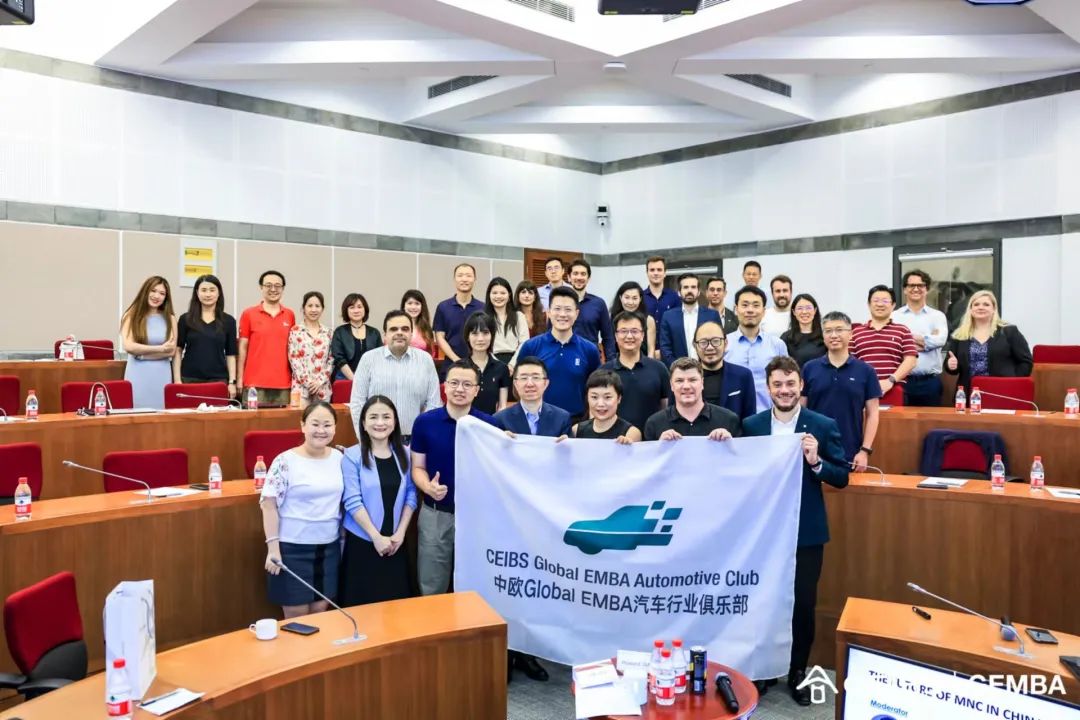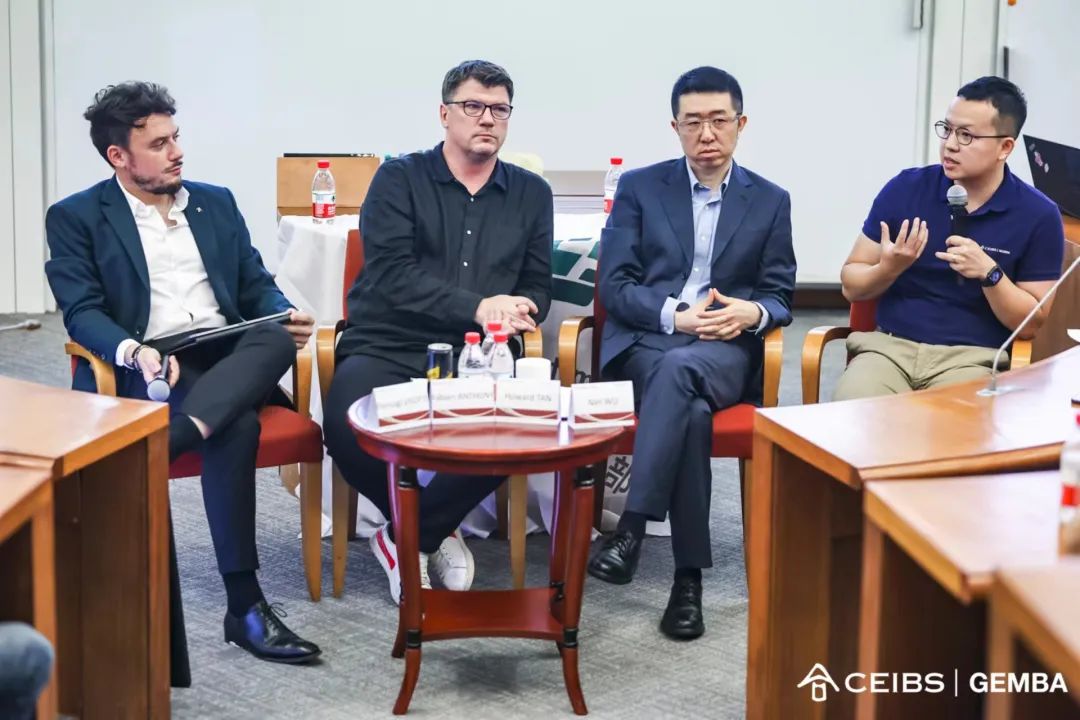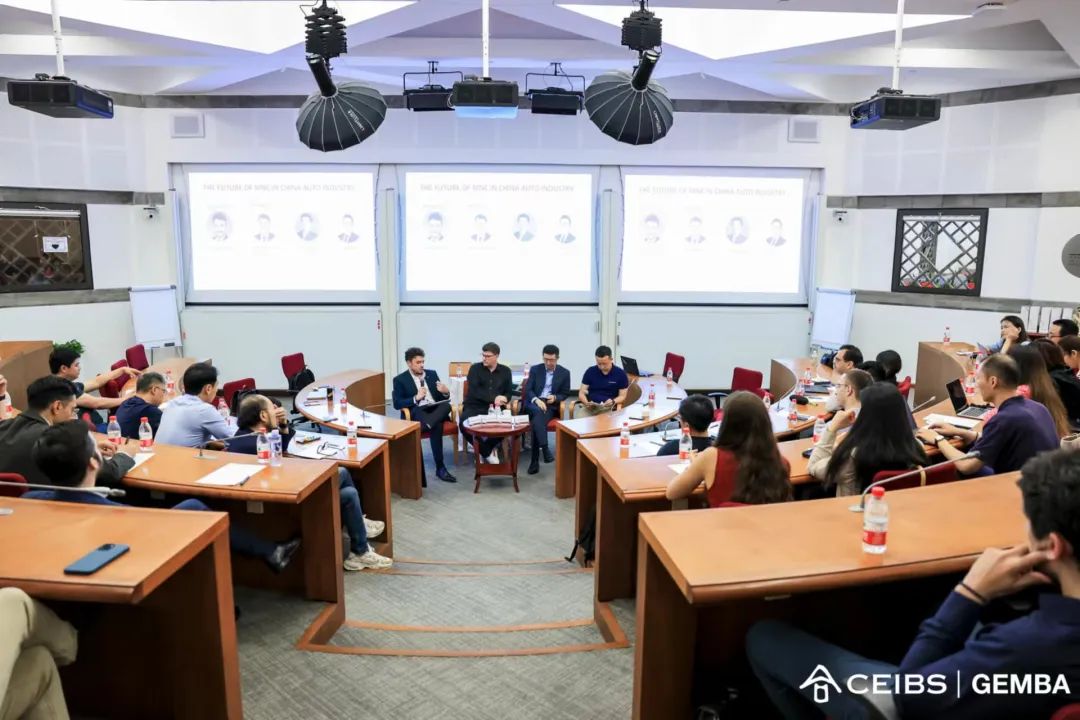How can Automotive MNCs future-proof their China Strategy?

The GEMBA Automotive Club – the latest to join the growing roster of student-led clubs in the GEMBA programme – had its inaugural event on July 6th 2023. The following insights were collected from their panel discussion and Q&A session featuring top-level executives from tier-1 automotive MNCs, carmakers, consultancy firms and technology solution providers.
On the cusp of an industrial revolution
The automotive market is changing, and nowhere is changing it more rapidly than China. Electrification is the single most impactive trend on the global market, and China is the dominant force in both producing and innovating EV products to satisfy its domestic market and the growing global consumer audience. Today, there are more opportunities than ever to look beyond China's EV manufacturing capacity and leverage its rapid innovation and tech-based capabilities.
Since 2015 the Chinese OEM (Original Equipment Manufacturer) business model has been evolving at an increasing pace. They aren't simply selling cars to drivers; they are looking beyond the initial sale with a view to providing solutions for smart mobility, connectivity and a more advanced automotive lifestyle. Accordingly, the customer portfolio of OEMs and the firms they use for consulting is changing as well. Different auto players are emerging with different challenges and niches to fill, as more tech suppliers bring in expertise from the internet/AI spheres to offer up novel solutions to the industry.
10-15 years ago, branding, network management and government relationship management were the three key areas that major automotive brands routinely focused on. Today, electrification, smart mobility and business model profitability are the leading questions that occupy auto leaders and consultants. The industry is no longer solely focused on the profit margins concerning a narrow set of issues, its leading players are rethinking the whole business and adapting quickly to evolving consumer needs.
Panel recommends:
- Look towards China for innovation as much as manufacturing.
- Think beyond the initial product sale – where does the vehicle fit into the consumer's lifestyle?

Where is Tesla’s successor?
While Chinese OEMs are dominant in the China market (hitting 75.4% market share in June 2023), the panel currently sees no sign of a firm (either Chinese or another MNC) coming to challenge Tesla on the global stage in the near future.
However, they noted the speed with which Chinese OEMs can not only lead on innovation trends, but also catch up in areas where they are behind. If a Chinese firm misses a trend, it can generally catch up within 18 months – a Western firm may take as long as 7 years to manage the same feat. While Tesla remains a trendsetter, it seems that its Chinese competitors have the capability to chase its progress more rapidly than ever.
Equally, the new energy vehicle competition is only just beginning. There is sufficient time for newcomers to emerge and secure massive market share on the global stage. EV penetration rates held at around 28% last year, are predicted to rise to 46% in 2025, and then reach over 70% by 2030. This represents massive ‘room to manoeuvre’ as all manner of automotive brands reach out to capture untapped or underserved markets worldwide. We're already seeing more aggressive moves from companies trying to carve out niches now and build up domestically. When it comes to China, several MNCs are trying to aggressively catch up with homegrown OEMs, with limited success so far, but this could change fast with right approach.
Panel recommends:
- Don't ignore China as a market or as a source of innovation – it's too much of a force to avoid.
- Don't try to enter the China market too rapidly without credible local partners.
- Take a long-term view on your China presence, building the right partnerships is more important than racing to market.

How can MNCs help Chinese players go global, and will this help them in China?
As the China market becomes more competitive, Chinese OEMs are now eager and sufficiently confident to expand their global presence. However, their weakness is that most of them lack consumer awareness, brand recognition and trust outside of China. This is where MNCs can come in – not only can they help brand China-made auto products successfully enter into a global market, the Chinese OEM can use the MNC's global footprint to quickly tap into new markets much more quickly.
More specifically, with EVs, Chinese OEMs are now aggressively targeting Europe and the US. Working with MNCs who have mature distribution networks in these regions means they can establish themselves and outpace their competitors much more easily than if they were developing such networks on their own. Finally, Chinese OEMs often lack local insights, and are reliant on MNCs to help them learn the local automotive culture and avoid missteps.
While there are many advantages for the Chinese firm in such a partnership, the MNC can enjoy significant benefits too. Working closely with a Chinese OEM, shaping their globalisation strategy can teach an MNC a lot about cost management, cross-industry collaboration and how to attain a rapid innovation mindset. Equally, the MNC learns the Chinese automotive culture at a deeper level, gaining a crucial foothold through the OEM's export business, one that can be quickly expanded.
Panel recommends
- Look for Chinese partners with a good cultural fit.
- Learn everything you can from one another – insights should flow freely between the OEM and MNC.

What is a winning strategy for MNCs in China for the next 3-5 years?
The panel roundly agreed that MNCs need to adopt an "In China, for China" strategy where they learn everything they can about what makes China's auto innovation efforts so unique and so successful. China is already the world's largest EV market and will continue to be so for the foreseeable future. China is also leading the disruption globally on electrification, smart mobility, in-vehicle connectivity and more. Those MNCs who want to maintain global leadership need to focus on what is happening in China, directly invest in China and replicate the innovative success of China.
Creating a winning China strategy is also immensely helpful for any MNCs global strategy as well. Globalisation works best when it's replicable and a common mistake automotive MNCs make is to fail to replicate. Since China is at the cutting edge of automotive industry trends, it is now at the point where its leading tech proponents are teaching and replicating innovations for the rest of the world.
Panel recommends
- Be "In China, for China".
- Ensure that successes and innovations secured in China are replicable in other markets.
- Bring global innovations to the China market, where they are best placed to create synergies.












